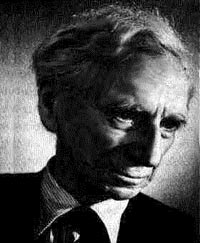What is Knowledge? (Philosophical Definitions), 1:59
A description of how philosophers define knowledge, all the way back to Plato, and a basic introduction to the distinction between warrant and justification. This video will help you to understand the basics of epistemology.
https://youtu.be/cxWxGYVVFJ0
Caring and Epistemic Demands
Linda Zagzebski
What Is Knowledge?
A. J. Ayer
Sir Alfred Jules "Freddie" Ayer, Fellow of the British Academy, 29 October 1910 – 27 June 1989), usually cited as A. J. Ayer, was a British philosopher known for his promotion of logical positivism, particularly in his books Language, Truth, and Logic (1936) and The Problem of Knowledge (1956).
He was educated at Eton College and Oxford University, after which he studied the philosophy of logical positivism at the University of Vienna. From 1933 to 1940 he lectured on philosophy at Christ Church, Oxford.
During the Second World War Ayer was a Special Operations Executive and MI6 agent.
He was Grote Professor of the Philosophy of Mind and Logic at University College London from 1946 until 1959, after which he returned to Oxford to become Wykeham Professor of Logic at New College. He was president of the Aristotelian Society from 1951 to 1952 and knighted in 1970.
Logical positivism and logical empiricism, which together formed neopositivism, was a movement in Western philosophy whose central thesis was verificationism, a theory of knowledge which asserted that only statements verifiable through empirical observation are cognitively meaningful. The movement flourished in the 1920s and 1930s in several European centers.
AJ Ayer on Logical Positivism, 1:23
A J Ayer in discussion with Bryan Magee on logical positivism.
https://youtu.be/S1Pj8d9vQ8s
Efforts to convert philosophy to this new "scientific philosophy", shared with empirical sciences' best examples, such as Einstein's general theory of relativity, sought to prevent confusion rooted in unclear language and unverifiable claims.
The Berlin Circle and Vienna Circle—groups of philosophers, scientists, and mathematicians in Berlin and Vienna—propounded logical positivism, starting in the late 1920s.
AJ Ayer Summaryy, 3:37
A2 Philosophy project By Ben Gill, Jess Hill and Stef Dickinson-Smith
https://youtu.be/fSleS1g6dsE
Edmund L. Gettier
Robert Nozick
Robert Nozick November 16, 1938 – January 23, 2002) was an American philosopher. He held the Joseph Pellegrino University Professorship at Harvard University, and was president of the American Philosophical Association. He is best known for his books Philosophical Explanations (1981), which included his counterfactual theory of knowledge, and Anarchy, State, and Utopia (1974), a libertarian answer to John Rawls' A Theory of Justice (1971). His other work involved decision theory and epistemology.
Bertrand Russell
D. Z. Phillips
Dewi Zephaniah Phillips (24 November 1934 – 25 July 2006), known as D. Z. Phillips, Dewi Z, or simply DZ, was a leading proponent of Wittgensteinian philosophy of religion. He had an academic career spanning five decades, and at the time of his death he held the Danforth Chair in Philosophy of religion at Claremont Graduate University, California, and was Professor Emeritus of Philosophy at Swansea University.
Thus, his early work almost entirely contradicted his later work.
Bertrand Russell
Induction without a Problem
P. F. Strawson
Susan Haack
René Descartes
An Essay Concerning Human Understanding
John Locke
David Hume
Immanuel Kant











